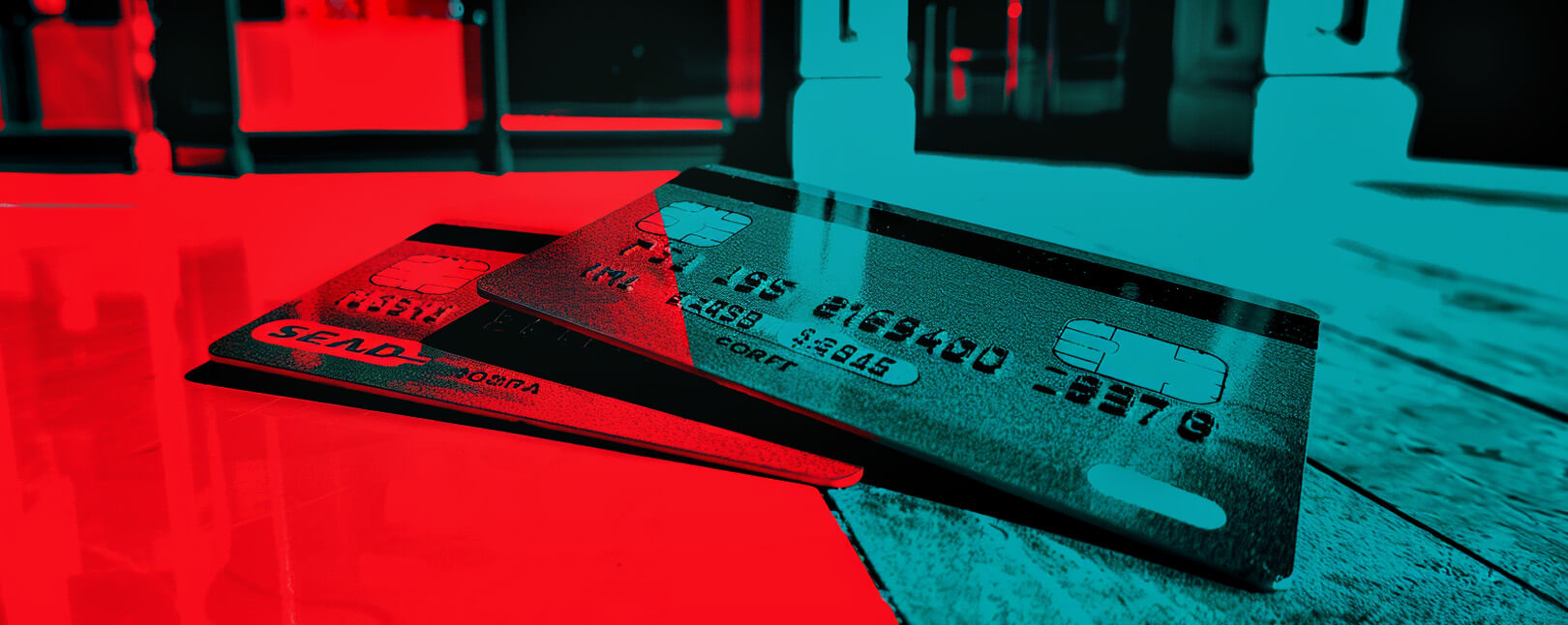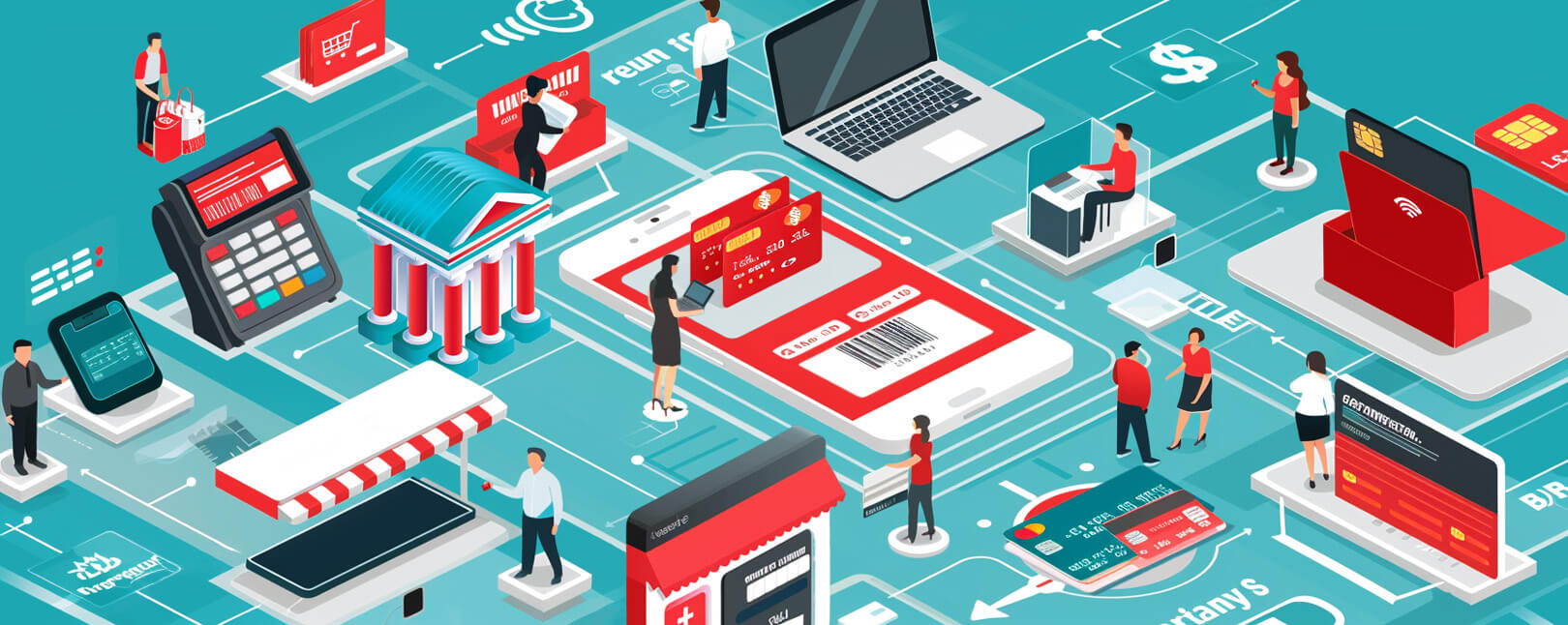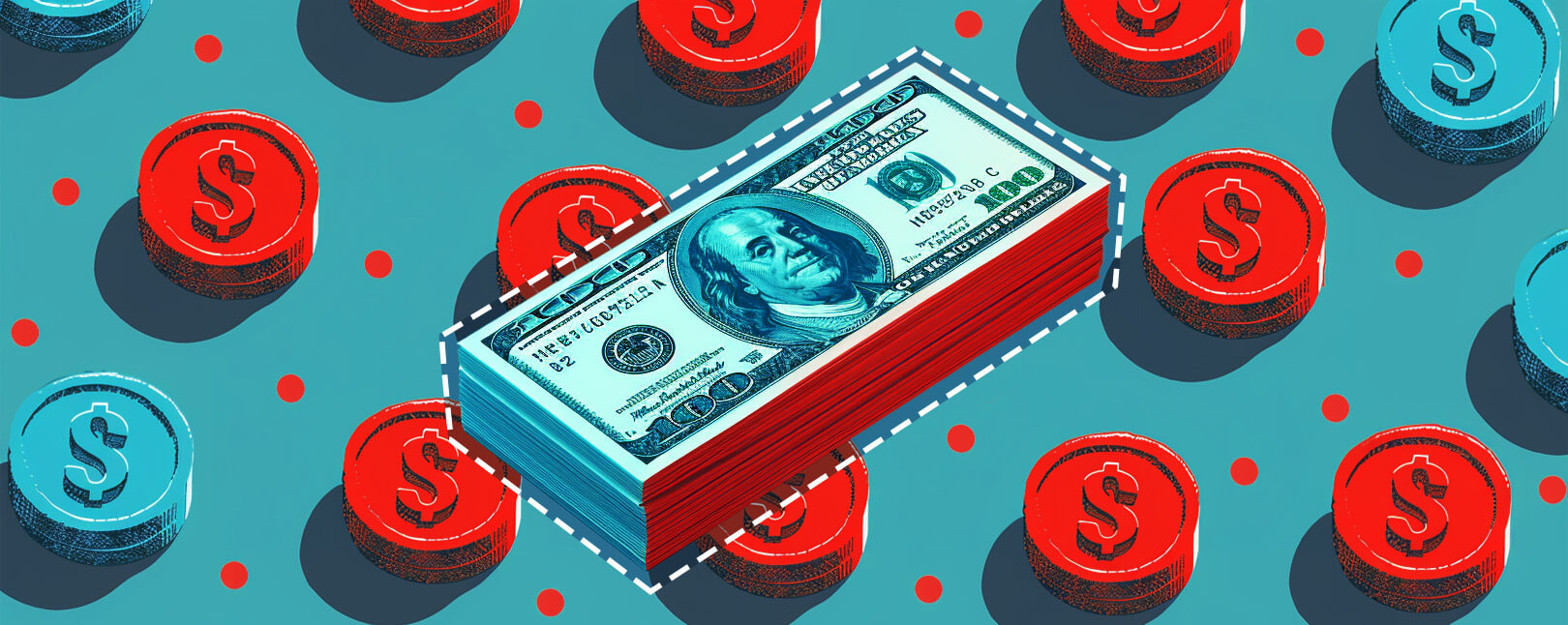Everything You Need to Know About Debit Card Chargebacks
Here’s an interesting factoid: the average American had at least one debit card — as well as four credit cards — in their wallet in 2023.
Cardholders tend to use these cards interchangeably. This can lead to problems, though, as there are significant differences between the two payment methods. When it comes to chargebacks, for instance, it’s important to understand the differences between credit and debit cards. This is true for cardholders, as well as you, the merchant.
Recommended reading
- A Step-By-Step Guide to the Chargeback Process in 2024
- Provisional Credits: Here’s Everything You Need to Know.
- Here are the 5 Valid Reasons to Dispute a Charge
- Chargeback Costs: The Shocking Truth in 2024
- 14 Chargeback Facts Exposing the Threat of Fraud in 2024
- How are Partial Chargeback Different From Other Disputes?
What is a Debit Card Chargeback?
- Debit Card Chargeback
A debit card chargeback is a debit card charge that has been reversed by a bank. The bank pulls the funds from the merchant's account and returns them to the cardholder's account.
[noun]/de • bit • kärd • chahrj • bak/
Like with credit disputes, debit chargebacks often happen after a cardholder contacts their bank to dispute a transaction. In most cases, the cardholder claims that the transaction in question resulted from fraud or abuse.
The debit card chargeback and credit card chargeback processes work the same way, in a general sense. In both cases, the cardholder disputes a claim made using their card, and the bank claws the funds back from your merchant account in response.
When used correctly, chargebacks offer a critical layer of consumer protection. If a debit cardholder becomes a victim of identity theft, they can get their funds back through a chargeback.
How do Credit Card & Debit Card Fraud Protections Differ?
The primary difference between payment cards is the level of fraud protection mandated by law.
When it comes to a dispute, debit card customers could have more to lose (in theory, at least). So, let's take a look at the different fraud protections mandated by law for three commonly used card types:
Credit Cards
Credit cards offer consumers the widest fraud protection. By federal law, a cardholder can only be held liable for the first $50 of unauthorized transactions at most. Beyond that, the bank must either eat the costs or try to recover the money through the chargeback process.
Debit Cards
Debit cards fall under the purview of the Electronic Funds Transfer Act. With debit cards, user liability is capped at $50 only if they notify the bank within two days of realizing the debit card is missing. Beyond that, they could be responsible for up to $500 of losses. Waiting more than 60 days to contact the bank about a fraud incident could mean the cardholder is liable for all unauthorized charges.
Prepaid Cards
Federal rules put into effect in 2019 now require banks to provide prepaid card users with coverage nearly identical to what debit cardholders have. Before that, prepaid cards traditionally came with limited (if any) fraud protection and only at the issuer's discretion. However, these new rules only apply to cards that are registered to a specific person. They don’t apply to gift cards, disaster-relief cards, health- and transit-related cards, etc.
Remember: the rules outlined above are the fraud liability mandates required by law. That’s not the end of the story, though.
Debit card chargeback time limits are determined based on the bank and the card network rules, plus the specific claim made by the cardholder. Banks can still opt to pursue claims on a customer's behalf, even if it's beyond the minimum required 60-day window.
Debit Card Protections vs. Credit Protections
As we alluded to already, credit and debit cards have very different rules. This extends to the level of fraud liability and chargeback rights associated with each card type.
Credit card users have greater federal protections in cases of identity theft or fraud. The Fair Credit Billing Act ensures that credit card users are liable for no more than $50, as long as the cardholder reports the incident within 60 days.
Unlike credit cards , debit card fraud protection falls under the Electronic Funds Transfer Act. Federal law limits liability for unauthorized debit card purchases to $50 only if the fraud is reported within two business days of discovery. If the incident is not reported within 48 hours, the cardholder liability is increased to $500. If the cardholder fails to report the incident within 60 days, though, they have no legal protections against debit card fraud. The bank has the right to pass all liability onto the cardholder (if they choose to do so).
When are Cardholders Encouraged to Use Credit Instead of Debit Cards?
There are some scenarios in which buyers are discouraged from using debit cards. Because of the decreased fraud protection, consumers are regularly warned against using their debit cards in situations considered “risky.” These can include:
- Any Card-Not-Present Situation: Card-not-present transactions, especially eCommerce, carry a greater inherent risk of fraud.
- Purchases Requiring a Deposit: Using a debit card means the consumer’s cash is tied up until the deposit is returned.
- Restaurants: Because the card leaves the consumer’s sight, there is a greater risk of merchant fraud involved.
- Preorders: Chargeback time limits usually begin the moment the purchase is made. The deadline might expire before the consumer is aware of a problem.
- Recurring Payments: Consumers might forget about an upcoming charge and have insufficient funds available when the transaction is processed.
- Travel Accommodations: There is a higher risk of compromised data if the information is stored for months pending upcoming travel arrangements.
Experts advise consumers not to use a debit card in these situations. Instead, they suggest using credit cards, which offer more fraud protection.
You would think that, as a result, merchants that fall into these categories would be less likely to see a debit card chargeback. However, consumers don’t always follow expert advice. As a result, you could actually see more debit card chargebacks if you fall into one of these higher-risk categories.
How to File a Debit Card Chargeback
The debit card chargeback process is very similar to the process used for a credit card chargeback. But, there are important differences related to the fact that debit card transactions draw funds directly from the cardholder’s bank account, rather than a line of credit.
Let’s assume for a moment that you’re a debit cardholder looking to dispute a charge. Here are the general steps you’d follow to file a debit card chargeback:
Step #1 | Review the Transaction
Identify the transaction you want to dispute. Ensure you have valid reasons to file a chargeback, such as not receiving goods or services, receiving defective merchandise, or being a victim of fraud.
Step #2 | Contact the Merchant
You should always attempt to resolve the dispute directly with the merchant before initiating a chargeback. Aside from the fact that most banks require this, it can also be faster and less adversarial. Keep records of any communications with the merchant.
Step #3 | Gather Documentation
Collect all relevant documentation related to the transaction. This includes receipts, order confirmations, emails, and any correspondence with the merchant. You’ll need these to support your claim.
Step #4 | Provisional Refund
A conditional refund is issued by the bank to the cardholder.
Step #5 | Contact Your Bank
If you can’t work out a solution with the merchant, now is the time to notify your bank. This is typically done through your bank’s customer service by phone, online, or in-person. You’ll need to fill out a dispute form detailing the transaction and your reason for disputing it.
Step #6 | Bank Investigation
After you’ve submitted your dispute, the bank will investigate your claim. They will review the information provided by both you and the merchant. Your account might be temporarily credited with the disputed amount during the investigation period.
Step #7 | Decision
Once the investigation is complete, the bank will make a decision. If your claim is upheld, the temporary credit will become permanent. If your claim is denied, the temporary credit will be reversed, and the charge will remain on your account.
Step #8 | Follow-Up
If the decision is not in your favor, but you still believe the charge was incorrect, you can ask for further review or provide additional information if possible. It's also advisable to check if there are any additional appeal processes.
The specific rules and timelines for debit card chargebacks can vary depending on your bank and the regulations in your region. It’s important to act quickly; there are typically strict deadlines for reporting unauthorized transactions to protect your rights under laws like the Electronic Fund Transfer Act in the United States. Always refer to your bank’s specific procedures and policies
When Can Cardholders File Debit Card Chargebacks?
Debit card chargebacks exist to provide cardholders with recourse when something goes wrong with a purchase. They are not intended to provide an alternative to the return process with a merchant. This is why every bank urges cardholders to attempt to resolve issues before they file a chargeback.
Understanding what qualifies as a valid reason for a chargeback is important for effectively navigating this process.
Valid Reasons for Debit Card Chargebacks
- You notice a transaction you did not authorize. This might occur due to stolen card details or other fraudulent activities.
- You paid for items or services that were never delivered. For instance, if the merchant has become unresponsive or has ceased operations.
- The products or services you receive are significantly different from the merchant's description or are defective.
- You were charged more than the agreed price, or are being billed multiple times for the same item.
- If you've returned an item or canceled a service and the merchant agreed to issue a refund, but no refund was processed.
Invalid Reasons for Debit Card Chargebacks
- Changing your mind after a purchase does not qualify for a chargeback. Chargebacks are not a means to bypass a merchant’s return policy.
- A merchant has a clear policy on restocking or return fees, but you’re attempting a chargeback as a way to avoid these fees.
- Problems that are covered under a manufacturer’s warranty. These concerns should be addressed with the manufacturer or warranty servicer.
A good rule of thumb to follow here would be to attempt to resolve problems with the merchant first. Only if they aren’t helpful, or refuse to refund you, should you call your bank and ask if your situation is grounds for a chargeback. The point we’re trying to get across here is that chargebacks should always be a last resort; it’s best for everyone to resolve the situation with the merchant whenever possible.
How Debit Card Chargebacks Affect Merchants
As we outlined above, there’s a clear distinction between credit and debit card protections from the cardholder’s perspective. There’s not a lot of difference from the merchant’s perspective, though.
Both credit and debit card chargebacks will result in lost revenue. The seller loses the cost of the initial transaction, plus any merchandise shipped. They also get hit with a chargeback fee ranging from $20 to $100 per transaction. This fee is non-refundable, regardless of the outcome of the dispute.
There are indirect costs to consider as well. For example, each chargeback means taking a hit due to overhead costs like shipping and interchange fees.
Chargeback issuances add up over time. This will negatively affect one’s chargeback ratio and could lead to their bank account being frozen or terminated altogether. The merchant could then be placed on the MATCH List, which would bar them from getting another standard merchant account.
How to Fight Debit Card Chargebacks
Merchants should never challenge a chargeback filed as a result of genuine fraud or an error on their part. In these cases, the merchant has to simply accept the claim. However, there are many cases in which sellers can — and absolutely should — fight back.
Merchants can fight back against invalid chargeback debit card claims through a process called representment. While there is a lot that goes into this process, here’s a basic rundown of how it works:
Step #1 | Examine the Claim
The bank will supply a reason code to explain the claim made by the cardholder. The seller should compare the cardholder’s claim to the documentation they have on file to see if it’s valid.
Step #2 | Gather Evidence
Sellers need evidence to fight an invalid claim. Acceptable documents can include transaction details, photographs, transcripts of conversations with the cardholder, and tracking or shipping information.
Step #3 | Draft a Rebuttal Letter
Merchant documentation must include a rebuttal letter that explains the situation and makes a succinct, yet compelling argument for why the debit card chargeback should be reversed.
Step #4 | Submit the Documents
After reviewing all documentation, the final step is to submit the claim to the bank. This must be done according to specific requirements (i.e., email, fax, physical mail, etc.).
Once the merchant submits their case, the acquirer will review it and forward it along to the issuer. It is then up to the cardholder’s bank to decide if the merchant’s argument is sound or compelling enough to reverse the debit card chargeback.
Top 5 Tips to Prevent Debit Card Chargebacks
Debit card chargebacks are not going away on their own. In fact, cardholders filed 615 million chargebacks in 2021, and that number is going to keep climbing year over year.
Merchants have to be proactive about this problem. So, with that in mind, here are five of our top tips for how to prevent debit card chargebacks:
#1 | Take Criminal Fraud Seriously
There are dozens of tactics fraudsters can use to take advantage of merchants and cardholders. Plus, they invent new schemes all the time.
Any good debit card chargeback management strategy will start with best practices to manage fraud risks. These include:
- Encouraging customers to create personal accounts for future purchases.
- Requiring strong passwords for accounts.
- Educating staff on fraud tactics and developing trends.
- Deploying a multilayer fraud management strategy backed by machine learning.
#2 | Deliver Excellent Customer Service
The average merchant can eliminate at least 20% of debit card chargebacks by optimizing their customer experience. Examples of practices to implement include:
- Promptly addressing all emails, phone calls, and social media messages.
- Training staff with enhanced problem-solving and dispute-resolution skills.
- Offering round-the-clock, live customer service across all contact channels.
- Make contact information easily accessible from every page of one’s site.
#3 | Be Clear about Authorization Amounts
Consumers can be easily confused by authorization holds. For example, hotels often place a hold on the debit card for more than the agreed-upon rate to cover potential damages and additional expenses.
While a credit cardholder might not notice the lowered available credit, a debit cardholder is more likely to be affected. If the merchant has authorized a charge that is more than the original transaction, the misunderstanding might cause the consumer to respond with a chargeback.
Be very clear with customers regarding any authorization holds. Outline the amount and the length of time the money may be held before applying the hold. Remember that some banks will hold the pre-authorization funds for one to eight additional business days. This is why it’s important to settle batched transactions as quickly as possible.
#4 | Simplify Returns
We want to emphasize this point: it should always be easier for cardholders to request returns than to file chargebacks.
Returns may not be ideal, but they offer an opportunity to rectify the situation in a way that benefits both parties. The consumer gets a refund, and the merchant avoids a chargeback. Plus, it provides a chance to build a stronger relationship with the customer and even to recover the sale.
Merchants will want to clarify this to cardholders. Impress on them that contacting the merchant’s customer service will be much easier and faster than contacting the bank.
#5 | Get Help
In-house chargeback management has its limitations. For instance, it’s extremely difficult to positively identify friendly fraud and prepare a chargeback response within the tight timeframes allowed by banks and card networks.
The good news is that help is available.
Our free ROI analysis can show just how much more merchants can earn by taking control of chargebacks. You can take the first step today to reduce your chargeback risk, recoup lost profits, and keep your business safe from debit card chargebacks.
FAQs
Can you chargeback on a debit card?
Yes, you can initiate a chargeback on a debit card if you encounter issues like unauthorized transactions, non-delivery of goods or services, defective merchandise, incorrect charges, or unprocessed credits. Always try to resolve the issue with the merchant before contacting your bank to file a chargeback.
Can I dispute a debit card charge that I willingly paid for?
Yes, you can dispute a debit card charge you willingly paid for if the goods or services were not delivered as described, were defective, or if there were billing errors. You should first attempt resolution with the merchant before proceeding with a charge dispute through your bank.
What qualifies for a chargeback?
A chargeback is qualified when there are unauthorized transactions, non-delivery or misrepresentation of goods or services, defective merchandise, or billing errors.
Can I claim money back if paid by debit card?
Yes, you can claim money back on a debit card purchase through a chargeback if there are issues like unauthorized transactions, non-delivery, defective goods, or billing errors.
What is a valid reason to dispute a debit card charge?
Valid reasons to dispute a debit card charge include unauthorized transactions, non-delivery of goods or services, receipt of defective or not-as-described merchandise, or billing errors. Always attempt to resolve these issues with the merchant first before initiating a dispute with your bank.
Can a bank refuse to do a chargeback?
Yes, a bank can refuse to do a chargeback if the dispute does not meet valid criteria, such as proof of fraud, billing errors, or contractual breaches, or if the claim is filed outside the designated timeframe. Additionally, insufficient evidence or failure to first address the issue with the merchant can also lead to a refusal.














